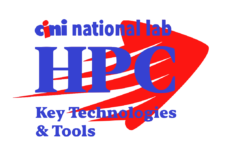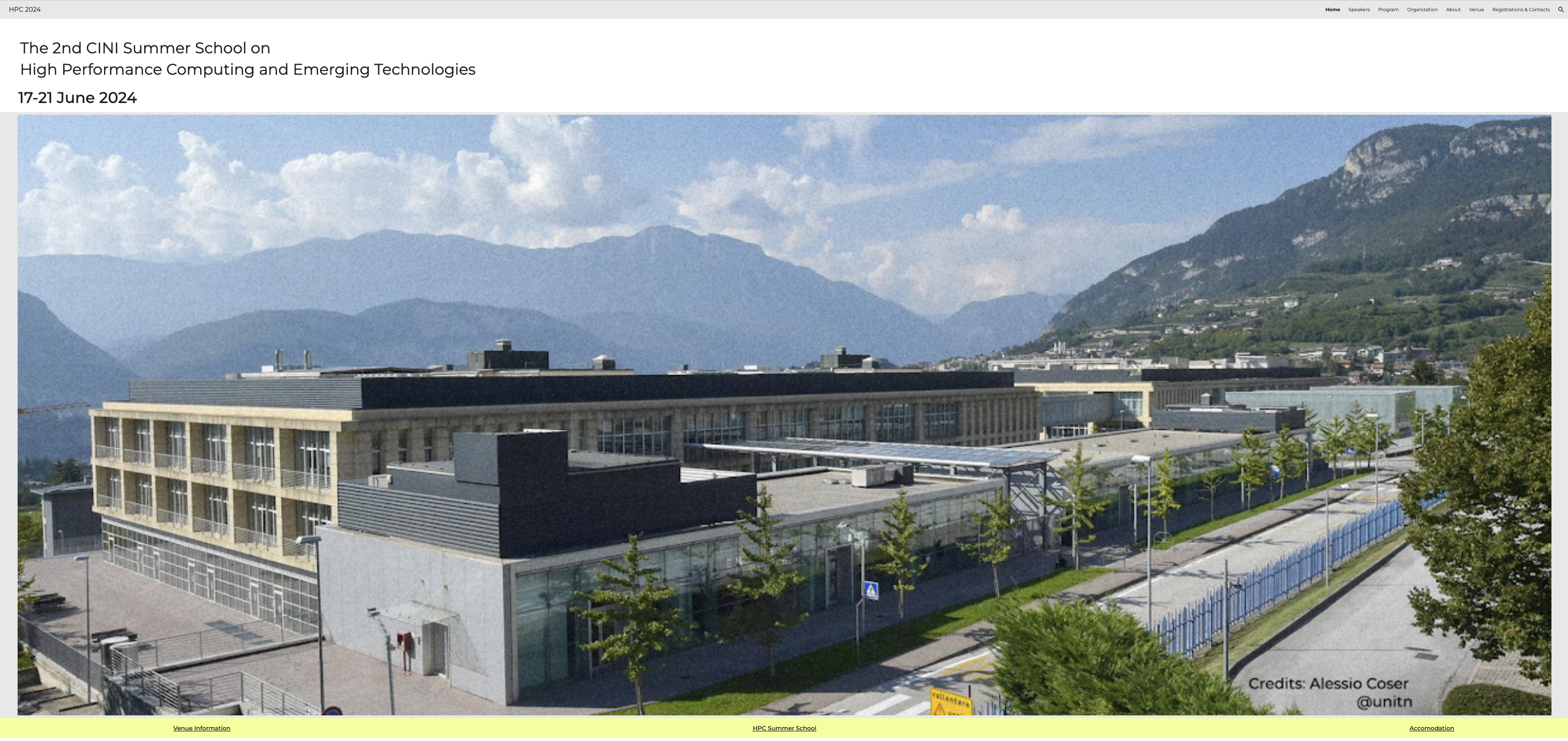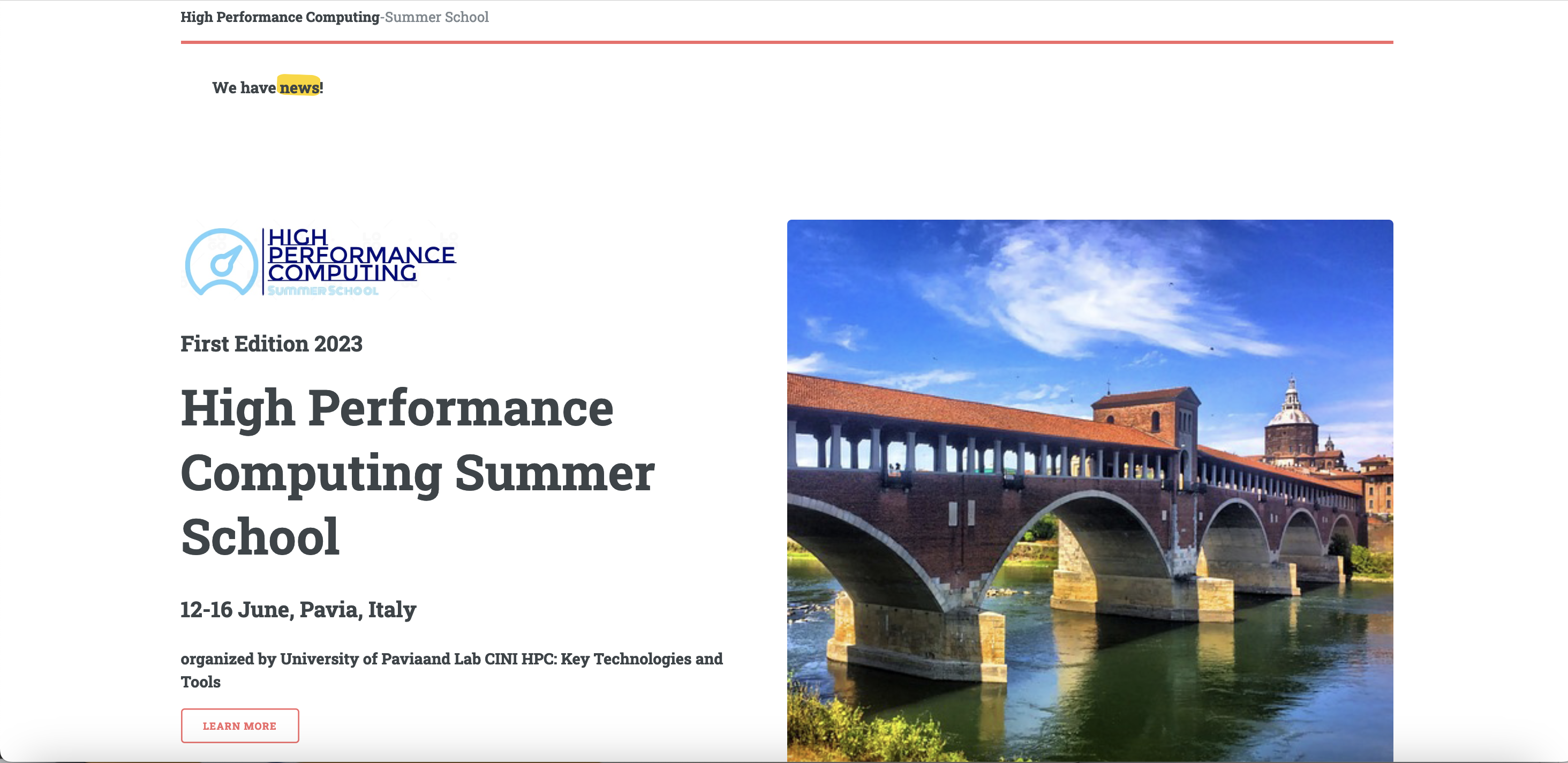About the school
About
Overview
Parallel, distributed, and network-based processing has undergone impressive impulse over recent years. High-Performance Computing, that is the use of supercomputers to face complex problems at huge scales, has greatly transformed many application fields ranging from science and engineering to finance and health care. Modeling and simulation, big data analytics, and machine learning have joined theory, observation, and experiment as fundamental paradigms of scientific discovery and have largely surpassed them as methodologies of engineering design.
New architectures, advanced programming models and tools, parallel algorithms and libraries, improved performance and energy efficiency, and novel application domains have rapidly become the central focus of this discipline. Main advances are often a result of the cross-fertilization of parallel and distributed computational paradigms with other rapidly evolving methodologies and technologies in different disciplines. It is paramount to review and assess these new developments in relation to the recent research achievements in various areas of parallel and distributed computing, considering both industrial and scientific points of view.


Mission
intentions and goals
The Summer School offers an intensive program on the entire hardware and software stack. This co-design perspective is essential for designing High-Performance Computing (HPC) solutions and accelerating data-centric workloads.
This edition will focus on innovative architectures and the most recent programming models, tools, and libraries for exploiting heterogeneous platforms embedding high-throughput accelerators. Some successful career stories in HPC will enrich the training offer. The curriculum aims to boost participants’ capabilities in utilizing HPC for complex scientific and industrial tasks, covering all the hardware and software toolchains from the basics of computer architecture and the design of high-performance processors to parallel and distributed computing methodologies, with a focus on some relevant application contexts.
The course will address the design of scalable parallel algorithms and the use of standard “de facto” programming models and tools crucial for enhancing HPC application performance, including practical hands-on sessions focusing on OpenMP, GPU programming, MPI, and performance monitoring. School attendees will be introduced to HPC trends like innovative structured programming tools, machine learning integration, and extra-functional properties like energy efficiency and reliability.
By the end of the school, attendees will have a thorough understanding of the HPC field, from hardware specifics to software development challenges and strategies, enabling them to contribute significantly to HPC’s future in their careers.
The school, as in the past edition, offers a mentoring program to support PhD students in their career path and research by receiving feedback from the lecturers.
The course addresses a broad audience, including PhD students, young researchers, professional engineers operating in the industry, and outstanding undergraduate students.


